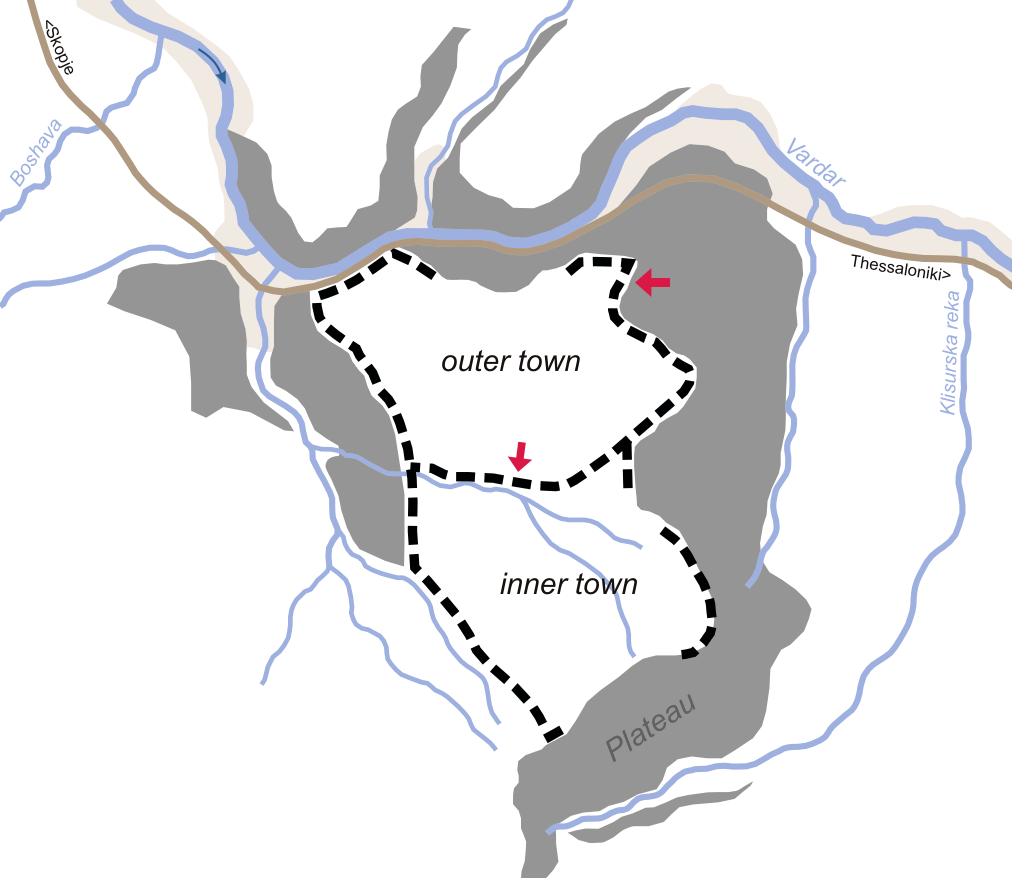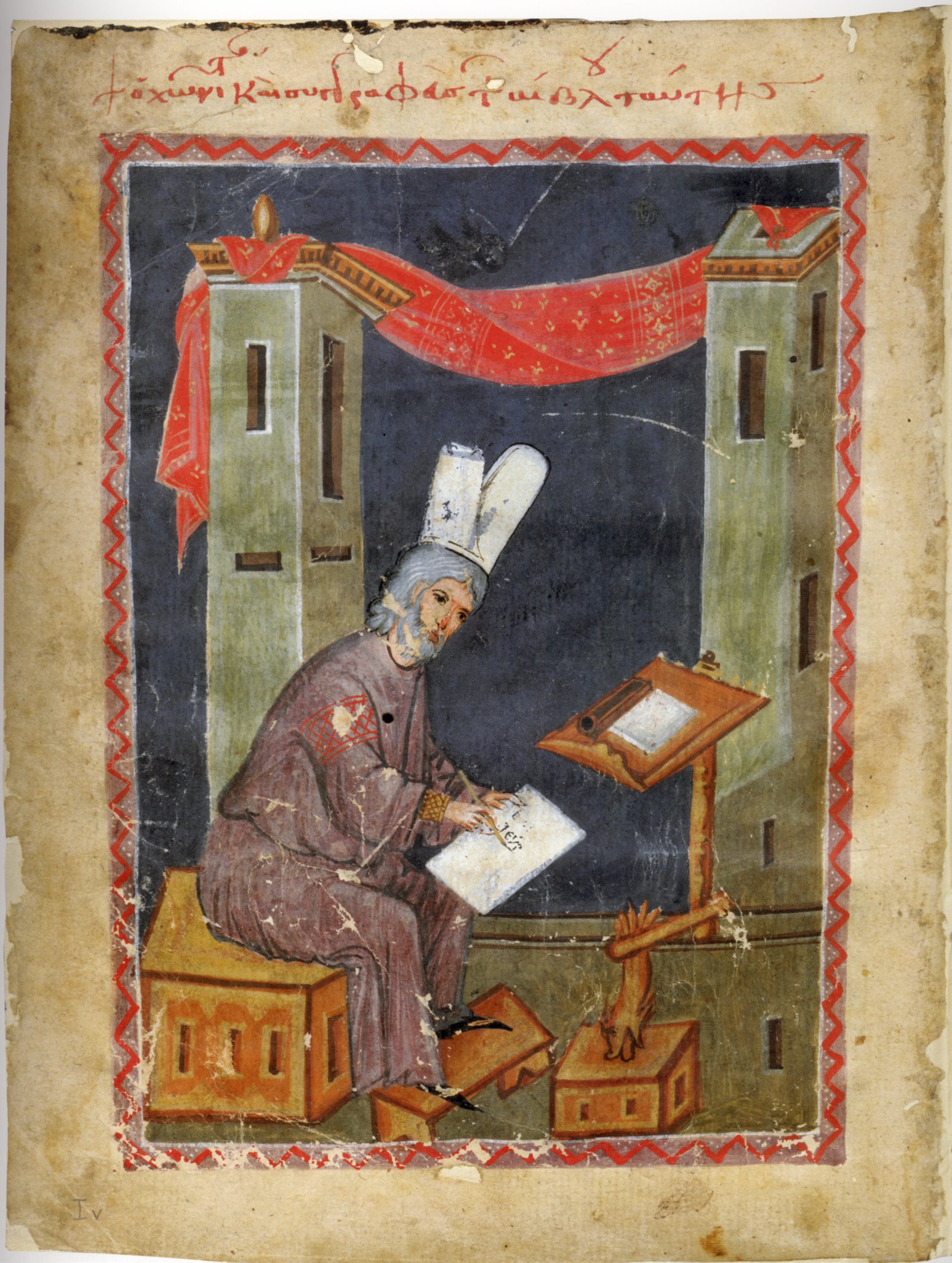|
Prosek, North Macedonia
Prosek (Macedonian alphabet: Просек), also known as Stenae (in Greek: Στεναί ''narrow''), is an archaeological site of a former city in North Macedonia. It was capital city of the independent rulers Dobromir Chrysos (from the 1190s to 1202) and Strez (from 1208 to 1214). Its ruins were discovered in 1948, about 1 km south of the town of Demir Kapija. There were found 4 towers, many ceramic objects, jewellery, coins, acropolis and necropolis. This settlement had an excellent strategical war position. The site is located on a limestone plateau surrounded by a curve of Vardar river. The sheer cliffs and the river make the area suitable for defense. A narrow gap between the rocks leads to the only entrance to the fortress. During last years of the 12th century and the first years of the 13th century, Prosek was the center of a rebel Byzantine province and later independent domain led by the nobleman (according to Niketas Choniates) Dobromir Chrysos. In 1202 the lands ... [...More Info...] [...Related Items...] OR: [Wikipedia] [Google] [Baidu] |
Prosek , a type of wine from Dalmatia
{{dab ...
Prosek or Prošek may refer to: Places * Prosek, North Macedonia, an archaeological site in North Macedonia * Prosek, Niška Banja, a village in Serbia * Prosek (Prague), a neighbourhood in Prague ** Prosek (Prague Metro), a Prague Metro station ** Stadion SK Prosek, a football stadium * Prosecco (Trieste), a village in Italy, known as Prosek in Slovenian People * James Prosek (1975–), American artist * Lisa Scola Prosek (1958–), American composer * Bohumil Prošek (1931–2014), Czech ice hockey player * Roman Prošek (1980–), Czech ice hockey defenceman * Václav Prošek (1993–), Czech footballer Other * Prošek Prošek is a sweet dessert wine that is traditionally from the southern area of Dalmatia, Croatia. It is made using dried wine grapes in the passito method. Good quality Prošek is usually much more expensive by volume than other wines due to a ... [...More Info...] [...Related Items...] OR: [Wikipedia] [Google] [Baidu] |
Niketas Choniates
Niketas or Nicetas Choniates ( el, Νικήτας Χωνιάτης; c. 1155 – 1217), whose actual surname was Akominatos (Ἀκομινάτος), was a Byzantine Greek government official and historian – like his brother Michael Akominatos, whom he accompanied to Constantinople from their birthplace Chonae (from which came his nickname, "Choniates" meaning "person from Chonae"). Nicetas wrote a history of the Eastern Roman Empire from 1118 to 1207. Life Nicetas Akominatos was born to wealthy parents around or after 1150 in Phrygia in the city of Chonae (near the modern Honaz in Turkey). Bishop Nicetas of Chonae baptized and named the infant; later he was called "Choniates" after his birthplace. When he was nine, his father dispatched him with his brother Michael to Constantinople to receive an education. Niketas' older brother greatly influenced him during the early stages of his life. He initially secured a post in the civil service, and held important appointments under t ... [...More Info...] [...Related Items...] OR: [Wikipedia] [Google] [Baidu] |
Archaeological Sites In North Macedonia
Archaeology or archeology is the scientific study of human activity through the recovery and analysis of material culture. The archaeological record consists of Artifact (archaeology), artifacts, architecture, biofact (archaeology), biofacts or ecofacts, archaeological site, sites, and cultural landscapes. Archaeology can be considered both a social science and a branch of the humanities. It is usually considered an independent academic discipline, but may also be classified as part of anthropology (in North America – the four-field approach), history or geography. Archaeologists study human prehistory and history, from the development of the first stone tools at Lomekwi in East Africa 3.3 million years ago up until recent decades. Archaeology is distinct from palaeontology, which is the study of fossil remains. Archaeology is particularly important for learning about prehistoric societies, for which, by definition, there are no written records. Prehistory includes ove ... [...More Info...] [...Related Items...] OR: [Wikipedia] [Google] [Baidu] |
1948 Archaeological Discoveries
Events January * January 1 ** The General Agreement on Tariffs and Trade (GATT) is inaugurated. ** The Constitution of New Jersey (later subject to amendment) goes into effect. ** The railways of Britain are nationalized, to form British Railways. * January 4 – Burma gains its independence from the United Kingdom, becoming an independent republic, named the ''Union of Burma'', with Sao Shwe Thaik as its first President, and U Nu its first Prime Minister. * January 5 ** Warner Brothers shows the first color newsreel ('' Tournament of Roses Parade'' and the ''Rose Bowl Game''). ** The first Kinsey Report, ''Sexual Behavior in the Human Male'', is published in the United States. * January 7 – Mantell UFO incident: Kentucky Air National Guard pilot Thomas Mantell crashes while in pursuit of an unidentified flying object. * January 12 – Mahatma Gandhi begins his fast-unto-death in Delhi, to stop communal violence during the Partition of India. * ... [...More Info...] [...Related Items...] OR: [Wikipedia] [Google] [Baidu] |


.jpg)
